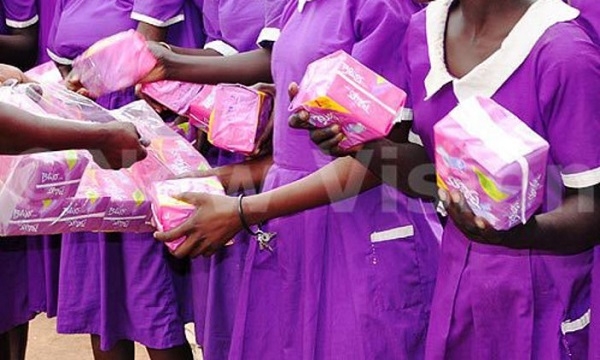Government's GHS292.4 million mistake: Why free sanitary pads is the problem and not a solution
 Sanitary pads distributed to school girls
Sanitary pads distributed to school girls
Menstrual hygiene is a critical issue that affects millions of women and girls worldwide and for far too long, governments have been slow to address the issue. Despite aspirations to improve the lives of girls, policies often fall short and the topic continues to shroud in stigma and neglect.
As hinted in the 2025 fiscal budget by Finance Minister, Dr. Ato Forson, the government plans to allocate GH¢292.4 million (approximately USD 18.9 million) to distribute free sanitary pads to female students in primary and secondary schools.
While the intention is commendable to many Ghanaians, the approach lacks policy creativity and fails to address the root issues. Menstrual hygiene is a multifaceted problem, encompassing cultural, biological, and economic aspects. Tackling the economic side by making sanitary products accessible and affordable is a more viable solution.
On one hand, providing free sanitary pads to girls in school seems like a straightforward solution to promote menstrual hygiene. However, this approach has several limitations. Firstly, it is a short-term fix that does not address the underlying issues of affordability and accessibility. Many girls and women in Ghana cannot afford sanitary pads, and relying on government handouts is not a reliable or sustainable solution.
Secondly, this approach creates and encourages a culture of dependency, where girls and women rely on external aid rather than taking ownership of their menstrual health. It is not a strong optic for women empowerment.
The allocated GH¢292.4 million of taxpayers many could be invested into the private sector to establish local production of menstrual products, creating jobs and stimulating economic growth. This way, we ensure a steady supply of affordable sanitary products, promoting menstrual health and hygiene. Local manufacturing of sanitary pads and other menstrual products creates indigenous and sustainable jobs that government can be proud of.
Small/Medium Scale business within the household and personal care sector can equally be encouraged, through incentives, to raise their production capacities to meet the market demands.
Will Government be bold to scrap taxes and end period poverty?
Sanitary pads are taxed in Ghana. With over 7 different taxes, [ including withholding tax of 1%, import duty of 20%, Income tax by manufacturers of 15%, wholesale and retail, VAT of 12.5% etc.] it makes them unaffordable for low-income women and girls. A sanitary pad costs between GH17 and GH40 cedis depending on the brand and determined factors of quality.
A young woman would need at least GH250 [$17.00 USD] to go through a “calendar menstrual season”.
MKV Social and Well-being Committee, a community group affiliated with Newmont Ghana recently distributed six months' worth of sanitary products to over 2,300 girls in rural communities in the Ahafo region. This intervention was prompted by disturbing accounts from teachers and students about the unfavorable effects of poor menstrual hygiene on education in the region. The group spent GH300,000 on pads for distribution; that translates to GH20 cedis per girl for 6 months
Exempting sanitary products from taxation would make them more affordable and accessible, promoting menstrual health and hygiene. The current status-quo does not recognize sanitary product as an essential, but as a luxury for a lot of young women.
In addition to local production and tax exemption, another innovative solution would be the creation of the/a "Pad Bank". This approach involves establishing a temporary [short term] "bank" to collect and distribute reusable sanitary pads to girls in primary and secondary schools. The Pad Bank would be stocked with reusable pads, which would be distributed to girls through the district education offices and/or health offices.
This approach can be driven and led independently by the Vice president's office or gender minister's where either of these will buy reasonable amounts of pads and deposit at the "bank" for distribution. Government, ordinary Ghanaians, religious bodies, chiefs, NGOs, and private enterprises will join the thread in buying any amount of pads voluntarily for distribution.
This approach would not only provide girls with access to sanitary products but will collectively dissolve any stereotypes, stigmas, surrounding menstrual health and also promote sustainability and environmental responsibility.
While the decision to distribute, free sanitary pads is a fulfilment of a campaign promise by President John Mahama and the New Democratic Congress (NDC), the "freebie" approach will affect a bigger promise which is restoring or resetting the ailing economy over time and may result in wasteful spending and scandals.
The Pad Bank initiative is not a new concept. In 2024, the Institute for Liberty and Policy Innovation (ILAPI), in collaboration with World Vision Ghana, conceived the initiative to address menstrual hygiene among girls in rural areas. The initiative demonstrates the potential of community-led solutions to address menstrual hygiene.
Ebenezer De-Gaulle
The author is a freelance media practitioner and researcher at the Institute for Liberty and Policy innovation.
Source: Ebenezer De-Gaulle






